Welcome to The Tonic, a light-hearted, heavily resourced newsletter for folks interested in learning about long COVID, ME/CFS, and other chronic illnesses. Come for the info; stay for the whimsy. Or vice versa.
Please note: my posting strategy is changing in response to my ever-shifting availability of energy (often referred to as ‘spoons’). I will generally post once a week on Saturdays or Sundays: a narrative post when my energy allows and resource roundups (known here as The Antidote) at all other times. Occasionally I post more than once a week, usually to announce an event or to push brief, timely info out to you sooner.
Wish list shout outs!
So much love!! Many of you have chosen to support of my efforts here via the Amazon wish list in lieu of paid subscriptions (which could jeopardize my disability benefits). A big Tonic THANK YOU this week goes to Florrie B., Steph F., and Meghan (a mystery donor revealed!).
Another mystery donor sent me some bird seed - the local birds say “chirp!” and Baldy, our resident avian seed filler, says thanks! Please tell me if that was you so I can include your name here next week.
If anyone else is interested in showing support, see below for the skinny. There’s something for every budget and any help is appreciated. (Note: please be sure to include a note with your gift(s) so I can reach out and thank you!)
The Tonic is free to read - Amy is so happy you’re here! There is no paid subscription option here like with other Substack newsletters. However, if you are valuing the experience and are able, please consider a show of support by sending a gift of health, wellness, or joy from this Amazon wish list. Anyone who does gets a 📢 in an upcoming post. Thank you!
Now on to this week’s post.
Had I not gotten sick
Do you ever wake up in the early hours of the morning, either for the day or just temporarily, and have some of the clearest and most profound thoughts of your whole day?
This has always happened to me since as far back as I can remember, but in the aftermath of COVID-19, the clarity has been in such stark contrast to the hour-by-hour descent of my brain into what feels like a tub full of molasses that characterizes the rest of my day.
It was one such morning when I woke up thinking deeply about the ways in which having Long COVID has made my life better.
Wait…….WUT?
You contracted a brand new, fire-breathing, oxygen-depriving, muscle-eating (more on that later), career-wrecking, hobby-slaying, gaslight-inducing, wholly misunderstood virus, lived to tell, and you want to talk about how life got better??
As I lay in bed thinking about it, the phrase, “had I not gotten sick,…” popped into my head and I thought, “I have to write a post about this.”
How many times have those of us with these life-changing illnesses - not just the chronic ones, but the ones that really shift your mindset about life - thought about the regrets of getting sick?
“Had I not gotten sick, I would have been up for that promotion.”
“Had I not gotten sick, I would have gone to see the pyramids.”
“Had I not gotten sick, I (we) could have had that second (third, fourth) child (cat).”
Our brains, after all, are wired for negativity, putting more weight on negative experiences than positive ones. Scientists believe we have evolved with this bias as a protective measure to keep us out of harm’s way. So having these kinds of thoughts about your sucky illness are a natural part of the human experience.
I’ll tell you that, while I have clung to hope so tightly over these last almost four years - reading all the studies, watching all the webinars, going to umpteen specialists (sometimes multiples of one specialty), and trying countless treatments - there have at times been some truly dark thoughts swirling around my head, especially in the first few years, when answers to “why me?” and “what’s really wrong with me?” and “am I going to die?” were in short supply.
Turns out the only way to get to the other side of grief is through it. I should have known this already, having lost my father when I was 17 and my mother when I was 24, and, after years of infertility treatments, having lost my one and only pregnancy just two weeks in. But for me, each bout with grief only vaguely resembles its predecessors, especially when they cross categories (i.e. the death of a parent vs. the death of life as you know it).
I have never once moved through a profound loss in my life without the help of a skilled therapist, even if it took me several years to figure that out (as in the case of my father’s death). And so the losses associated with Long COVID and ME/CFS have been no different; I have had two excellent therapists that have helped me move, albeit in a non-linear fashion, through all the stages of grief (denial, anger, bargaining, depression, and acceptance). I have also read a lot of books about living with chronic illness (I’ll do a future post on this) and have processed a lot on my own.
While I still have days where I slip into one of the other stages, for the past year or so, I would say I’ve been pretty firmly planted in acceptance. Acceptance doesn’t mean rolling over and giving up; it means coming to some sort of peace with your reality. “Acceptance with a fighting spirit” is what Bruce Campbell calls it, because while I am mostly at peace, I am still motivated to try what I can to recover my health. (Bruce recovered from ME/CFS and has run great self-help site ever since).
My first therapist during this illness (well, the first one worth mentioning) was Jamie, who herself had lived with ME/CFS (I wrote a bit about her here). She would sometimes tell me (I’m paraphrasing), “Amy, you may not be ready to hear this now, but one day you will be able to see why you got an illness like this and you will appreciate what it has taught you.”
Seeing her for the most part on the ‘other side’ of ME/CFS and at peace, I bought into what she was saying - which is not to say that I’d ever be happy that I got this shitty illness, just that it hasn’t all been bad and some aspects of it have in fact been good (for me; long haulers are an incredibly heterogeneous bunch and I am fully aware that not all of us will find the good in this experience). But I would not have gotten to ‘good’ without Jamie’s help and the help of my current therapist (who I had to find because Jamie had a baby! And took a year of parental leave, because: Canada > U.S.).
I do believe that it is only when you have started visiting the land of acceptance that you can have any measure of gratitude for your illness, or for the ways it has changed your life for the better. Folks in recovery from addiction often talk about the kick in the rear they finally got, or what it meant to “hit rock-bottom.” The thing about grief or the rock-bottominess of addiction is that they involve a clear understanding of what’s at stake, of whom or what you love the most in your life that makes it worth living.
Positive thoughts, then, are not the brain’s default position, and so it can take a tremendous amount of work to overtake the negative ones and to start to regularly think more positively. Again, you have to be ready for this and a certain level of acceptance of your situation seems necessary.
(To be clear: I’m not talking about toxic positivity here, where you are force-fed positive thoughts you aren’t ready for or where the reality of your experiences are somehow dismissed or trivialized by others. It’s generally a bad practice to tell someone how they should feel; it centers you and not them).
Once you are feeling more and more ready, it’s sometimes easiest to start with a brief, daily gratitude practice; keep a journal by your bed and write down 3-5 things you were grateful for that day, ranging from “yummy berries in my oatmeal” to “had a normal BM today!” to “my husband scooped the litter box so I didn’t have to.”
Some of you are thinking, “fuck STRAIGHT off with this gratitude crap, woman.” I get it; I had days where I wanted to poop on gratitude (without even being grateful for the BM). If gratitude is a bridge too far, then start with noticing small joys during your day: the branches or birds outside of your window, the warm socks you have on, a purring cat, etc. Make a habit of it and you may see that over time, it does get easier to notice bigger and bigger joys and then to perhaps move toward gratitude.
And, if you are really ready to embrace the possibilities behind changing your thoughts, this is where neuroplasticity or ‘brain retraining’ programs can be helpful. Check out Raelan Agle for the basics (and in the notes to this video, she lists several brain retraining programs specific to ME/CFS, long COVID, fibromyalgia, chronic Lyme, and more).
Getting back to this love letter
I’m here to tell you that Jamie the therapist was right (she is so wise). As time passes, I have been able to find the silver linings. Come along with me, if you will.
Had I not gotten sick, I never would have gotten off the hamster wheel of C-suite career/long hours/overachievement/trauma-exposure/stress. (For over 20 years, I was an executive at non-profits serving victims of violence/abuse/trafficking). Something was going to eventually wake me up to the way I was living. My body said no, just like Gabor Maté said it would. I’m just grateful it wasn’t something that killed me before I had a chance to take in the message.
Had I not gotten sick, I would not have had the profound respect for money that I have now. While I wish I had saved up more for this unforeseen circumstance while I was making decent bank, I have also learned how to be happy with less (ok, a lot less). For example, I not only don’t need any new clothes, I’ve purged my closets several times since getting sick and donated to the needy (a.k.a. my sister, niece, sibkid, and to actual charity 😅). I have a great home and I have love and books and cats and food to eat. I’m good.
Had I not gotten sick, I may not have taken the time to appreciate the loyalty and commitment of my spouse. Baldy has SHOWN UP, y’all. Then again, he always does when the going gets tough. Adversity splinters some couples or drives a wedge between them; we are lucky to get stronger in the hardest of times.
Had I not gotten sick, I am not sure when I would have learned the true power and value of “no.” No more; I’m at my limit. Dodging the energy vampires. Setting boundaries. Listening to my body, pacing my actions and movements, resting when she says its needed.
Had I not gotten sick, I may have missed out on some deeper moments of friendship. In the before times, I was an out-three-nights-a-week extrovert. Lots of friends in the rotation. Since getting sick, my circle has gotten tighter. Friends have had to make more of an effort to see me, have had to be flexible around the multiple ‘conditions’ I have placed on our getting together for my own safety or well-being. Some have put that effort in, and many have not, for their own reasons (though a good many have stayed in touch, which I’ve appreciated in its own way). Over these past 3+ years, my deck has held up some of the best and funniest conversations of my life; it bore witness to our tears as a best friend practiced her father’s eulogy with me. Pizza shops, diner outings, ice cream venues - places I have felt safe meeting people during weekday, off-peak hours - have emotionally restored me, even when I needed to lay down after. In sum, though the quantity of friends and outings have been fewer, the quality has been *chef’s kiss*.
Had I not gotten sick, I would never have slowed down enough to appreciate our beautiful home and the nature that surrounds it on all sides. The big windows that allow us to see four seasons of gorgeous maple, juniper, oak, and pine trees. The many ledges by those windows where our cats get to enjoy the view. The tiniest of pinecones I stopped to examine on one of my driveway walks. The pileated woodpeckers, the opossums (all named Fred 🤭), the owls and their distinctive hooting most evenings, even the playful yipping and howling of the pack of coyotes that lives nearby. The mama turkey who one year had TEN babies, all miraculously surviving to adulthood. The peeping tom in a deer suit.
Had I not gotten sick, I would not have been able to spend so much time with our kitties. We adopted Fritzy just a few weeks into my long haul; he has only ever known me as a stay-at-home mom (even when I was working remotely). The amount of time I got to spend with our late little baby Speck as his health deteriorated, kissing him and taking in the warm smell of the fur on his head (he was the best-smelling cat I’ve ever had). Time winning over Zira, the elder stateswoman, who always preferred Baldy to me (maybe because I was hardly home). Adopting our little Birdie-birds, and watching in amazement as she mirrors so many of the quirks and behaviors that Speck had, leaving us feeling that the universe sent her to us to ease the pain of losing him.
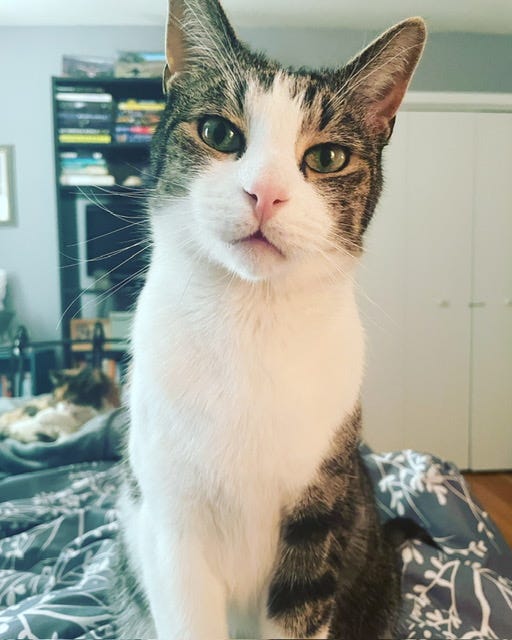
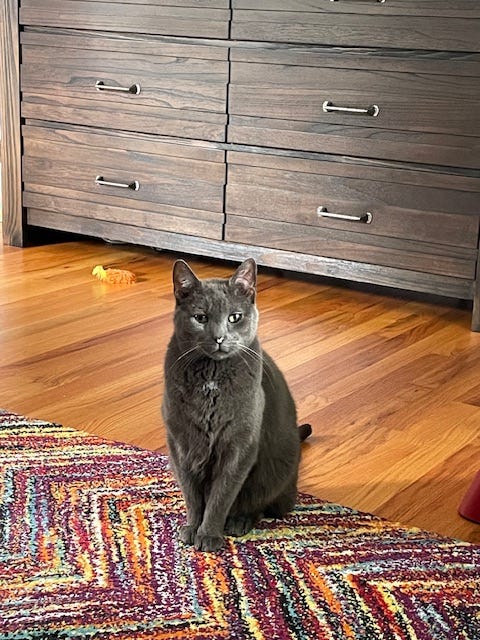
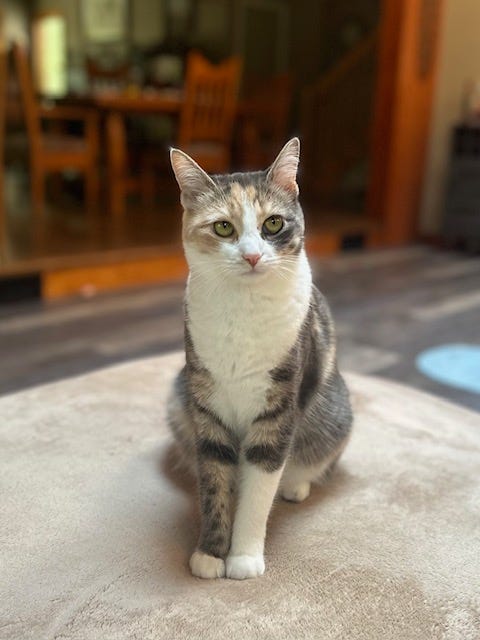
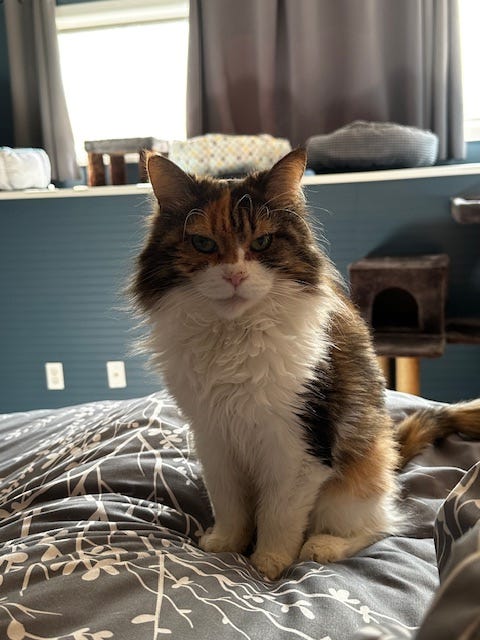
Had I not gotten sick, I would never have known just how much of a self-advocate I could be, just how emotionally strong I could be even though I felt so physically weak. When it would have been so much easier to tolerate things, I mustered up the courage to walk away from doctors and systems that treated me poorly or just weren’t helping. When my employer’s disability plan told me no, then told me no again, then their new disability carrier also told me no, I could have thrown in the towel; instead, I decided that I couldn’t accept ‘no’, especially when I truly needed these benefits. I sought out the test that would turn the tide for me (the two-day CPET). And after years of running to every specialist I could find, it has taken wisdom and strength to recognize that managed-care medicine has so little to offer me (us), and I decided to stick with a small circle of providers who really get it and support me. While I have to recognize certain privileges - being white, cisgender, straight = better chance of being believed/treated, having a partner whose career enabled us to have access to excellent health insurance, having good and available credit with which to pay for needed tests - I also need to acknowledge the navigational and advocacy skills it has taken to get where I am.
And finally…
Had I not gotten sick, I never would have started a Substack about these seemingly intractable illnesses. That much seems obvious - why would I have? I had never even heard of ME/CFS before getting Long COVID. I think what I mean is that I would not have pursued something so creative and so meaningful at the same time. In the frantic pace of the before times, the only creativity I really had in my life was deciding what tattoo to get next (and then having someone else design it, lol). There was no battery-life remaining for anything left-brainy. I’ve always loved writing and yet I only made time to do so when I had to write a grant proposal or a balanced/diplomatic work email. To spend time writing for enjoyment is a whole new muscle I’m flexing, and I’m loving it.
The end, for now…
Stick around for…
🥳 The After-party 🥳
Announcements, links to articles and studies, recommendations and shout-outs, and miscellany joy and/or tomfoolery.
💪🏽 We start with a significant Long COVID study that was released recently; as always, Cort Johnson at Health Rising does a great job of making sense of it all: Exercise Causes Muscle Damage and Energy Depletion in Long COVID.
🕊️ Last week, I shared the news of the tragic loss of one of our staunchest advocates, Beth Mazur. Join #MEAction for a celebration of life service today, January 13th at 5pm ET. In lieu of flowers, the family asks that you make a donation here.
👨🏽💻 In the U.S.? Participate in the CURE ID TLC survey to increase our understanding of Long COVID treatments. CURE ID-TLC is an NIH/FDA initiative developed with LC patients and clinical partners.
🦠 How Covid-19's symptoms have changed with each new variant.
😷 Take action for bringing masks back in healthcare settings: a letter-writing campaign by the People’s CDC.
⚡ Ari Whitten talks to Dr. Eric Gordon about mitochondria:
🆕 Meet
, an important new voice in the Substack Long COVIDsphere:😑 A moving piece by
on the current state of COVID-19 apathy and her anger about it (reflecting the anger/frustration of so many of us):🧘🏻♀️ The Tonic’s favorite yoga instructor, Shannon at Nourish Therapeutic Yoga (‘spoonie-friendly yoga’), is offering a four-week series blending somatic and restorative practices starting January 19th. Registration closes soon; find out more here.
🤦🏽♂️ Buffoon of the week: There was no other choice this week but the guy who couldn’t keep his mouth shut for FIVE MORE MINUTES, insulting the judge who’s also playing jury in his civil trial right before it ended. Ever the victim, even as he openly commits fraud: Trump lashes out at judge in closing arguments of civil fraud trial.
🏆 Winners of the week: Meet Josh and Joe, a.k.a. The Healing Dudes. They joined forces to help each other heal from chronic Lyme and Long COVID, then they started their own coaching service to help others navigate recovery. Check them out!
🐈⬛ 💩 And finally, it’s this week’s Cat Dump. The shorthairs-get-caught-biting-ears-and-then-try-to-act-normal edition.





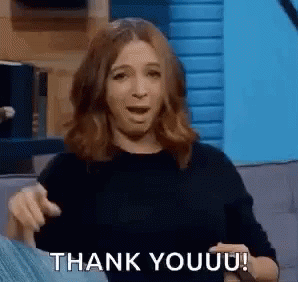


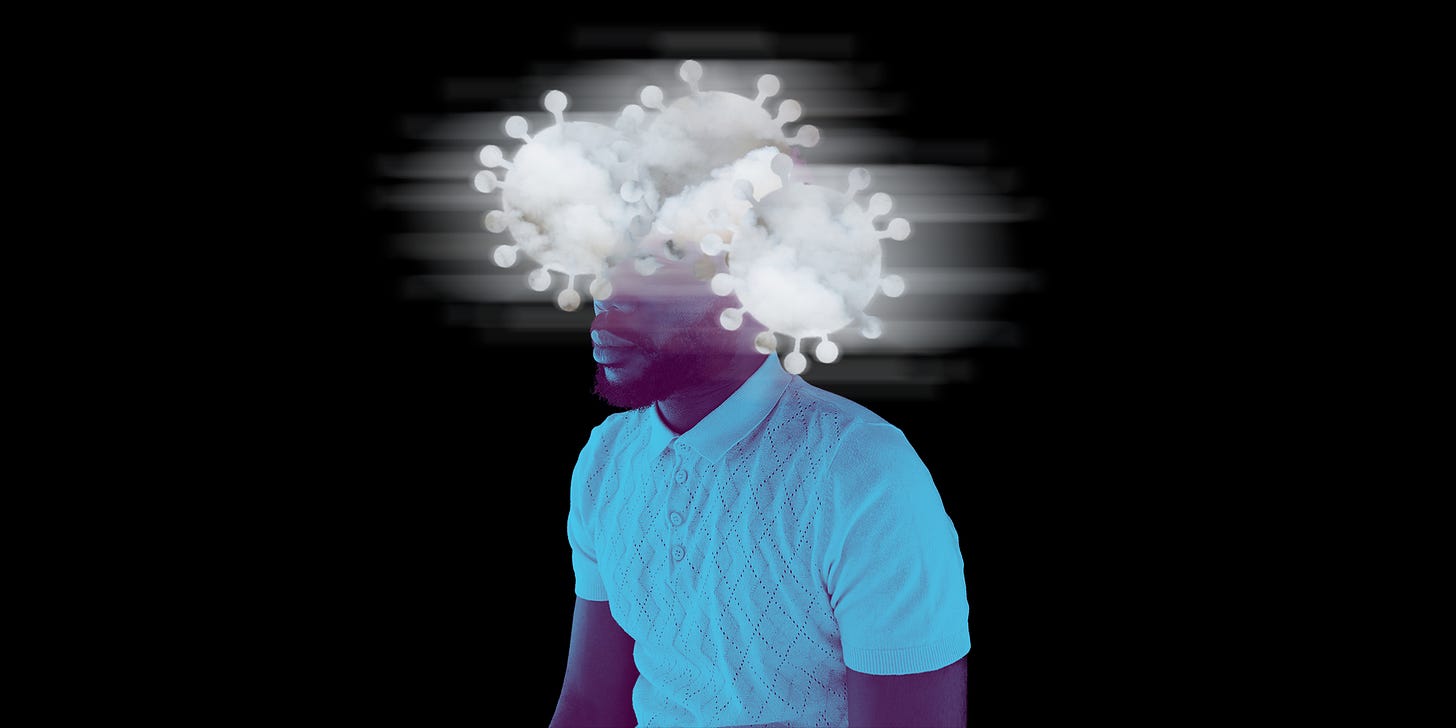
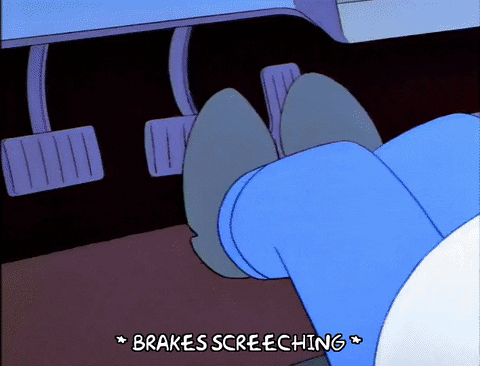
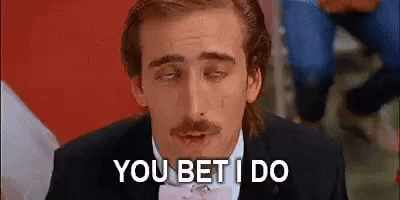

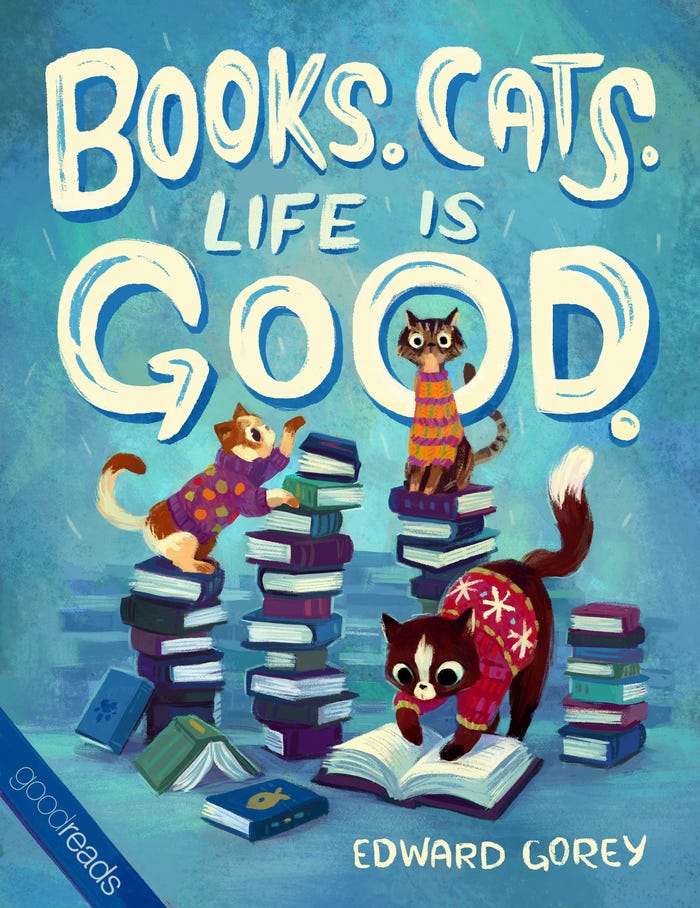
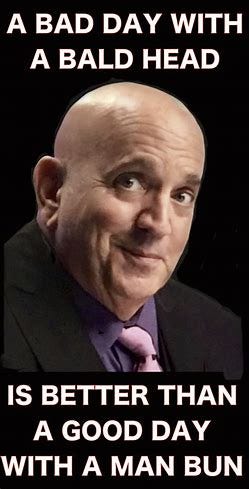
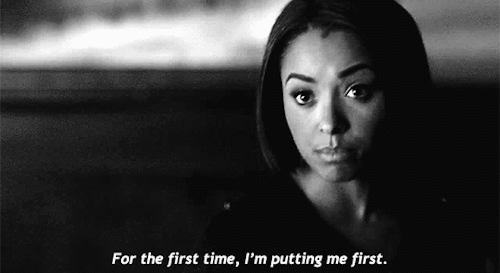
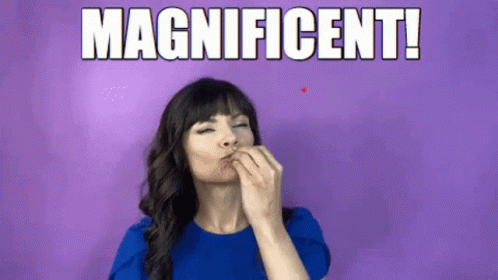
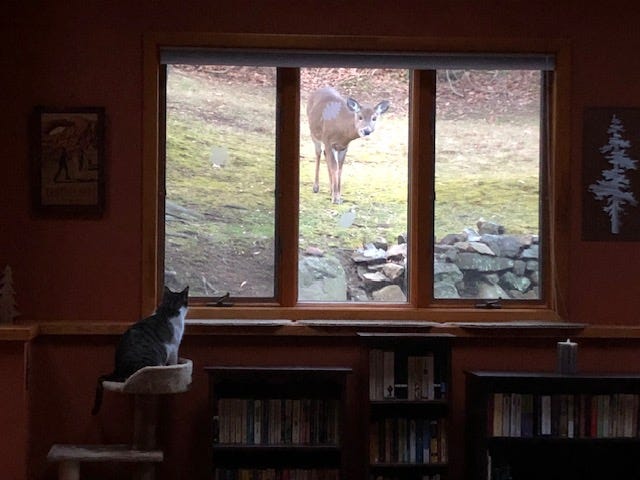
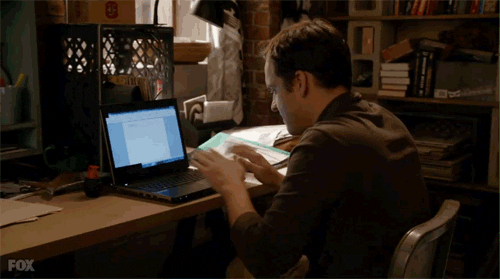




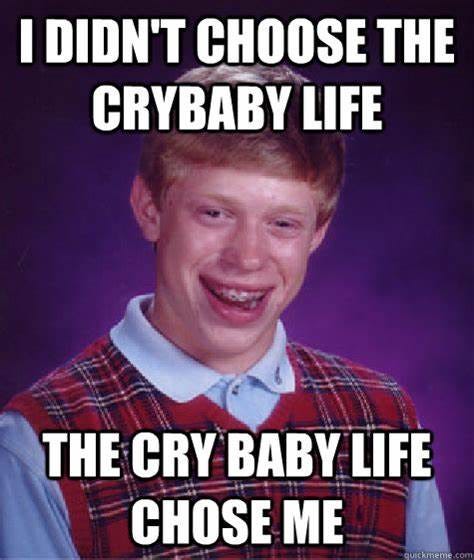

Such a great post and thank you so much for the shout out and recommendation! As a glass half empty/why me? person for most of my life, gratitude and perspective shifts have been such helpful tools. They help me appreciate what I have and generally avoid going down the self-pity spiral. It's not always easy, but I try to focus on what I'm thankful for as a result of being born with a disability instead of just focusing on how much harder it makes my life. Also, your kitties are absolutely adorable.
Peeping Tom in a deer suit. 🤣🤣🤣